Sulfur and Acne: Does Sulfur Help Acne?

When you think of sulfur (also spelled sulphur), you might wrinkle your nose—thoughts of stinky brimstone rising to the top of your mind. However, sulfur has been used for centuries as a form of acne treatment, and this mineral is actually still used to fight acne bacteria today.
Thanks to its skin shedding and antibacterial properties, you’ll likely see sulfur listed as an ingredient in many acne and skin care products.
From 200 A.D. to present day, sulfur has proven useful in many skin care regimens. However, with so many newly discovered acne fighting ingredients on the market, is it still a worthy treatment?
Sulfur and Skin Care through the Ages
Sulfur’s been used in skin care regimens for thousands of years. There have been documented stories about Romans bathing in warm water filled with sulfur to help combat acne symptoms and the Ancient Egyptians used sulfur to create a salve designed to treat eczema and acne almost 5,000 years ago. Traditional Chinese Medicine also found this smelly mineral to be useful, putting it in skin care ointments over 2,000 years ago.
In the 1950s, sulfur could be found in a foam, created to apply directly to broken skin. It maintained its worldwide popularity in acne treatment products for decades. These days, sulfur can be found in three main products: sulfur soaps, sulfur ointment, and sulfur face masks—luckily, many companies have been able to reduce the mineral’s telltale smell of rotten eggs in their products.
Typically used as a leave-on treatment, there are a bevy of topical sulfur products to choose from, but just how effective—and safe—is this active ingredient? First, it’s important to examine why sulfur has been such a popular skin care treatment option throughout the centuries.
How Does Sulfur Help Acne?
To understand how sulfur combats an acne diagnosis, it’s important to understand just how those pesky pimples come about. Hormone changes can increase the production of androgens, a male hormone that stimulates the production of sebum in the skin’s sebaceous glands. When too much sebum is produced, it can combine with leftover dead skin cells and P. acnes bacteria, eventually clogging up the pore. As this mixture becomes trapped beneath the skin, inflammation occurs, resulting in an often painful acne lesion.
Sulfur works to dry out the skin; as acne is caused by the excess production of oil in the sebaceous glands, sulfur’s ability to cut down on sebum can help those with acne-prone skin combat frequent breakouts.
Sulfur is also a keratolytic; when applied topically to the skin, sulfur causes the top layer of the epidermis to dry and peel off. This can help slough away dead skin cells to keep pores unblocked, allowing a fresh new layer of smooth skin to grow in its place. Sulfur also has antibacterial properties, helping to combat the presence of P. acnes bacterium that can cause infections within the dermis.
However, sulfuric acid treatments aren’t right for all skin types and grades of acne. Many skin care experts believe that using sulfur on acne can help those with oily skin types, as it dries out the skin, getting rid of excess oil that can clog pores.
In contrast, sulfur can react negatively with those who have combination or dry skin types, as the excess drying effect can result in painful irritation and flaking skin. When it comes to severity, sulfur treatments for acne work best on patients suffering from mild to moderate acne; it generally can’t relieve cystic breakouts or severe acne issues.
What Else Is Sulfur Used for in Skin Care?
Beyond acne treatment, sulfur is used for a host of skin ailments, including seborrheic dermatitis, rosacea, eczema, and dandruff. As sulfur assists in the shedding of excessive skin growth and fights bacteria found on the skin’s surface and within the pores, it can prove to be a useful treatment option for many of these skin conditions and can often be found in varied shampoos and soaps.
Is Sulfur Right for Me?
Sulfur isn’t a cure-all treatment, in fact, many skin types find that acne treatment products containing sulfur can actually be harmful to their skin. The same things that make sulfur effective in the fight against acne can simultaneously cause a host of other skin ailments. Sulfur has a high pH balance, which can disrupt your skin’s protective barrier. This can cause moisture to evaporate and allow bacteria into your pores.
Those struggling with acne will turn to numerous possible solutions, but those solutions aren't always as effective as they're purported to be.
You may also be interested in these alternative acne treatment topics:
The Side Effects of Sulfur
Before grabbing a sulfur product, it’s important to consider the side effects this popular acne treatment solution can have.
Skin Irritation
Because sulfur contains strong chemical properties, it can result in excessive skin irritation, like redness, swelling, itching, and flaking. This is due to sulfur’s ability to expedite skin cell growth and turnover. If you have a rash, dry skin, or sunburn, sulfur can worsen the effects.
Skin Discoloration
Many patients find that using products with high proportions of sulfur can result in noticeable skin discoloration. Areas in which new skin is revealed as a result of sulfur treatment can appear white, gray, and black that can be temporary or permanent.
Excess Sebum
It may seem strange that a product touted to dry out the skin and fight acne prevalence would result in more oil production, but that’s one of the unfortunate side effects in some cases of sulfur use. Skin that becomes excessively dry may trigger the production of more oil, which can worsen an acne condition—exactly the issue to be avoided.
Allergic Reactions
Many experience allergic reactions to the chemicals in sulfur. This allergic reaction can range from skin rashes to severe effects including facial swelling, hives, or difficulty breathing. Sulfur is often combined with sodium sulfacetamide, so it’s important to read the ingredient list on any product you buy. Those that are allergic to sulfa drugs should avoid this combination, as it can result in severe reactions.
A Less Than Pleasant Odor
While not exactly a side effect, some sulfur products do exhibit a strong odor—that rotten egg scent we mentioned earlier. Natural, organic sulfur products and those without additional fragrances are generally more odorous. If the smell is overwhelming, it can cause headaches, which generally leads acne patients to search for sulfur products that contain fragrances; unfortunately, the addition of fragrances can worsen breakouts and affect sensitive skin types more severely.
Pregnancy Concerns
For women who are pregnant or may become pregnant, it’s important to discuss sulfur product use with their doctor. The FDA included sulfur as a pregnancy Category C drug. This means it’s shown adverse effects on fetuses in animal studies; however, there are no controlled studies indicating the same results for humans.
Sulfur can react badly with prescription acne treatment regimens and result in irritation and sun sensitivity if combined with the wrong products. Always consult with your doctor before using sulfur for acne treatment in combination with a prescription medicine. While these side effects can disperse after a few days or weeks of continued use, there are products that can help you avoid these ailments from the start.
Are There More Effective Acne Treatments than Sulfur?
While its role in skin care has been lauded for centuries, it turns out sulfur and acne treatment do not necessarily go hand in hand as the most effective treatment in today’s world. Due to its numerous negative side effects, many acne patients prefer to use other treatment options that have fewer side effects and tend to be more effective. The most common are salicylic acid and benzoyl peroxide.
So which should you use? One of the most effective acne treatment ingredients is salicylic acid. Unlike sulfur, benzoyl peroxide, and other drying ingredients used in common acne treatment options, this emollient gently and effectively sloughs dead skin cells off the surface of the skin. This natural ingredient penetrates deep into pores to unclog hair follicles, clearing current acne blemishes and preventing future breakouts.
While sulfur acne treatments don’t work for everyone, this bacteria-killing mineral can be useful for certain skin types dealing with mild to moderate acne. Sulfur products are best used for spot treatments. Use sulfur sparingly and consider alternative regimens like our Clear Skin Routine. If you notice any excess dryness or redness, discontinue or reduce your use of sulfur products to avoid harming your skin.
Clearer skin in as little as two weeks.
This 3-step routine combines the most effective (clinically-proven) acne fighting ingredients with powerful plant intelligence to leave your skin nourished, refreshed, and clear.
Try Some
bioClarity skin care products contain naturally derived ingredients that help clear acne blemishes without drying out the skin. Our revolutionary products are designed to clear the skin without harsh side effects, providing you with the soft, supple skin you’ve always dreamed of.

Abby Vinas
Abby Vinas has long been an active member of the holistic health community, advocating in favor of its benefits to both our physical and emotional well-being. Her commitment to leading a healthy lifestyle has made her an authority on self-care practices. Abby is passionate about fitness, nutrition, and proper skincare, and is also an avid lover of avocado toast and dog-petting.



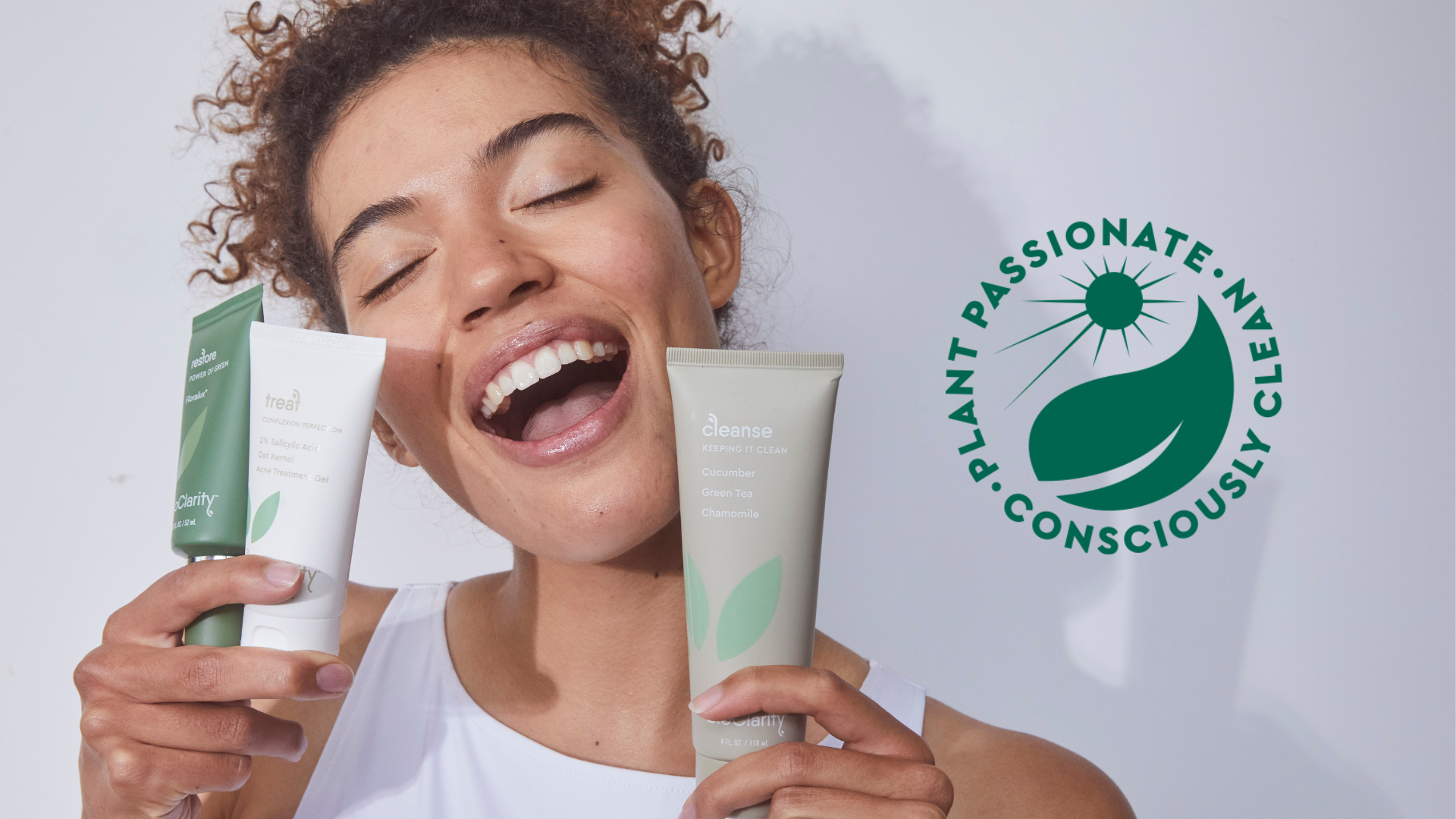
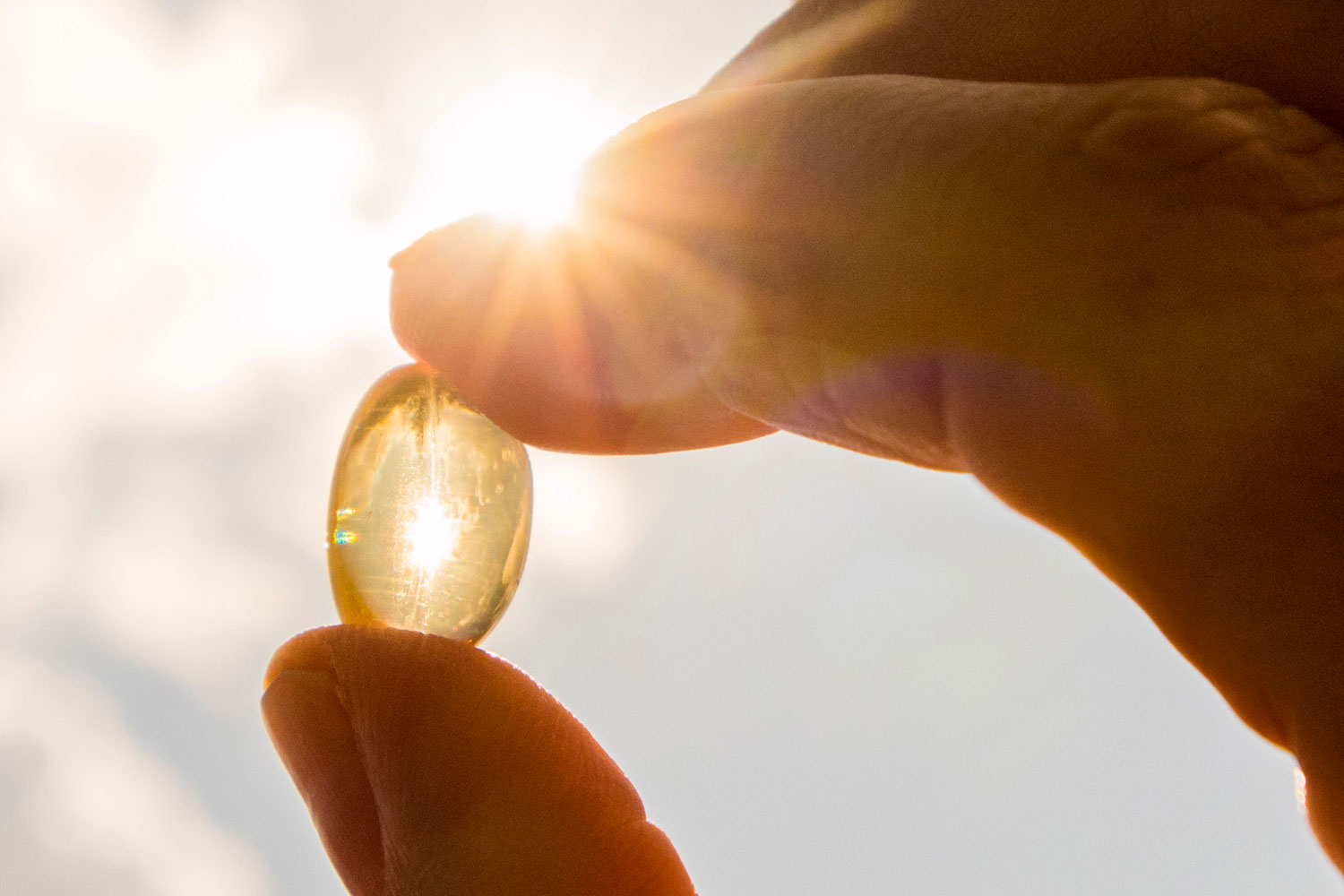
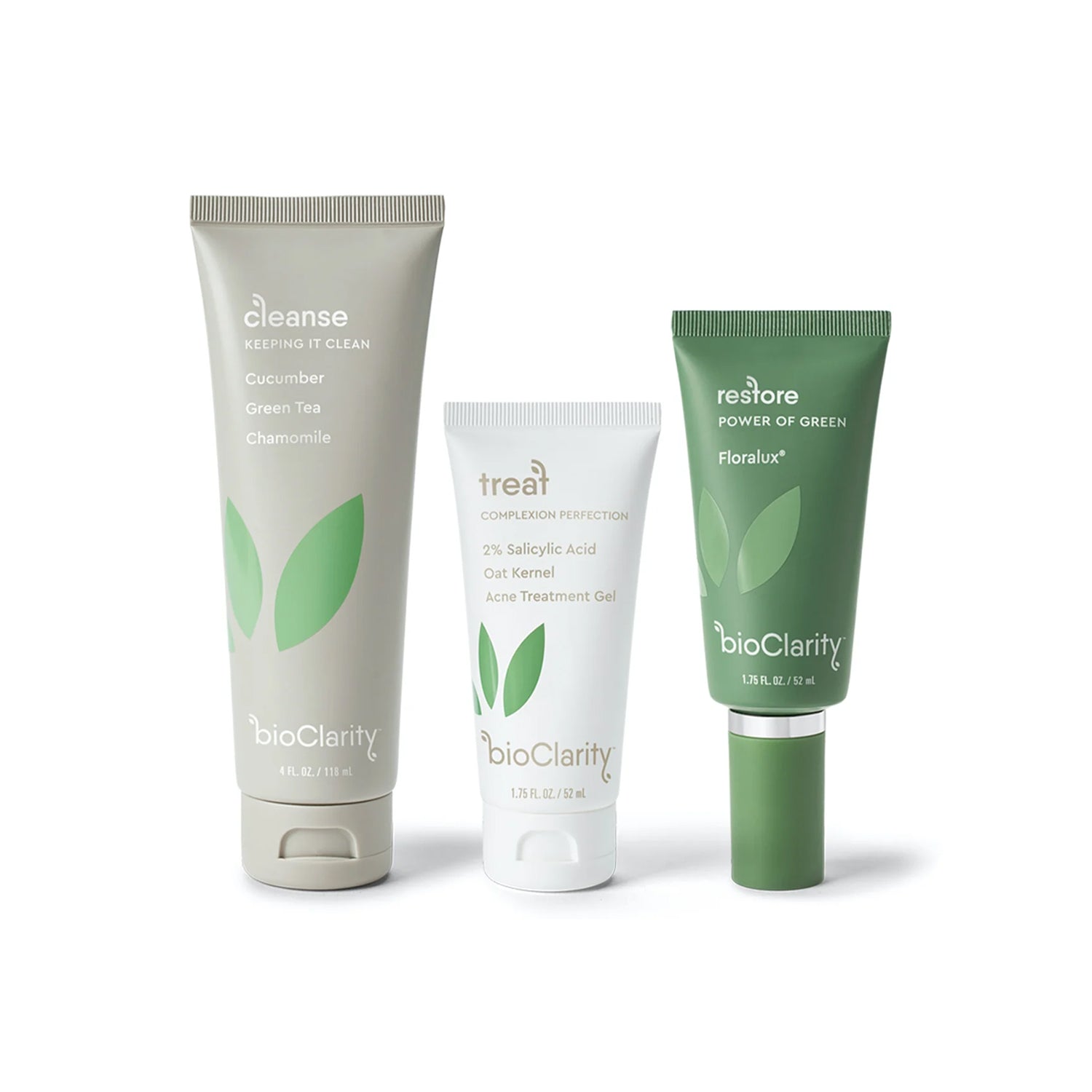
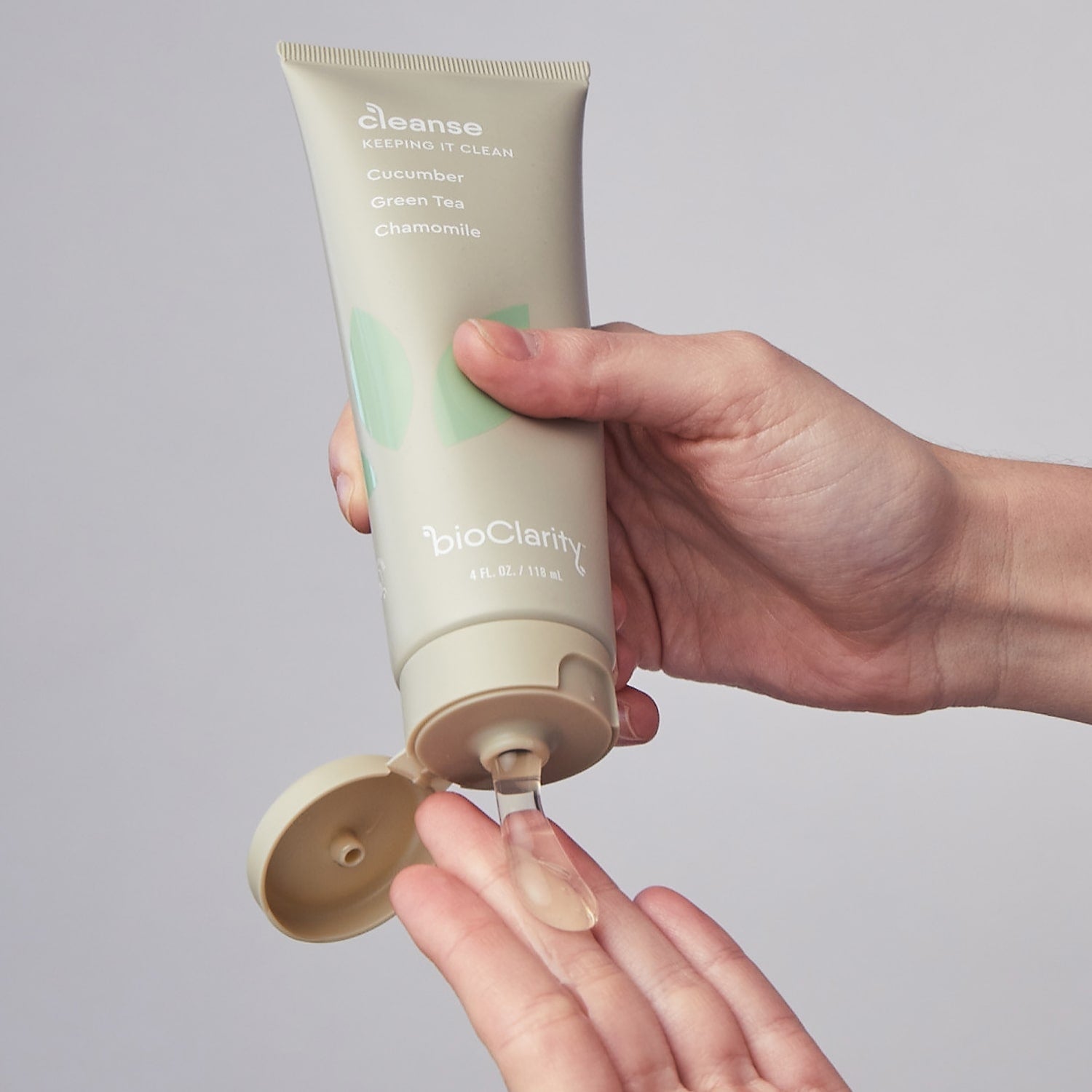
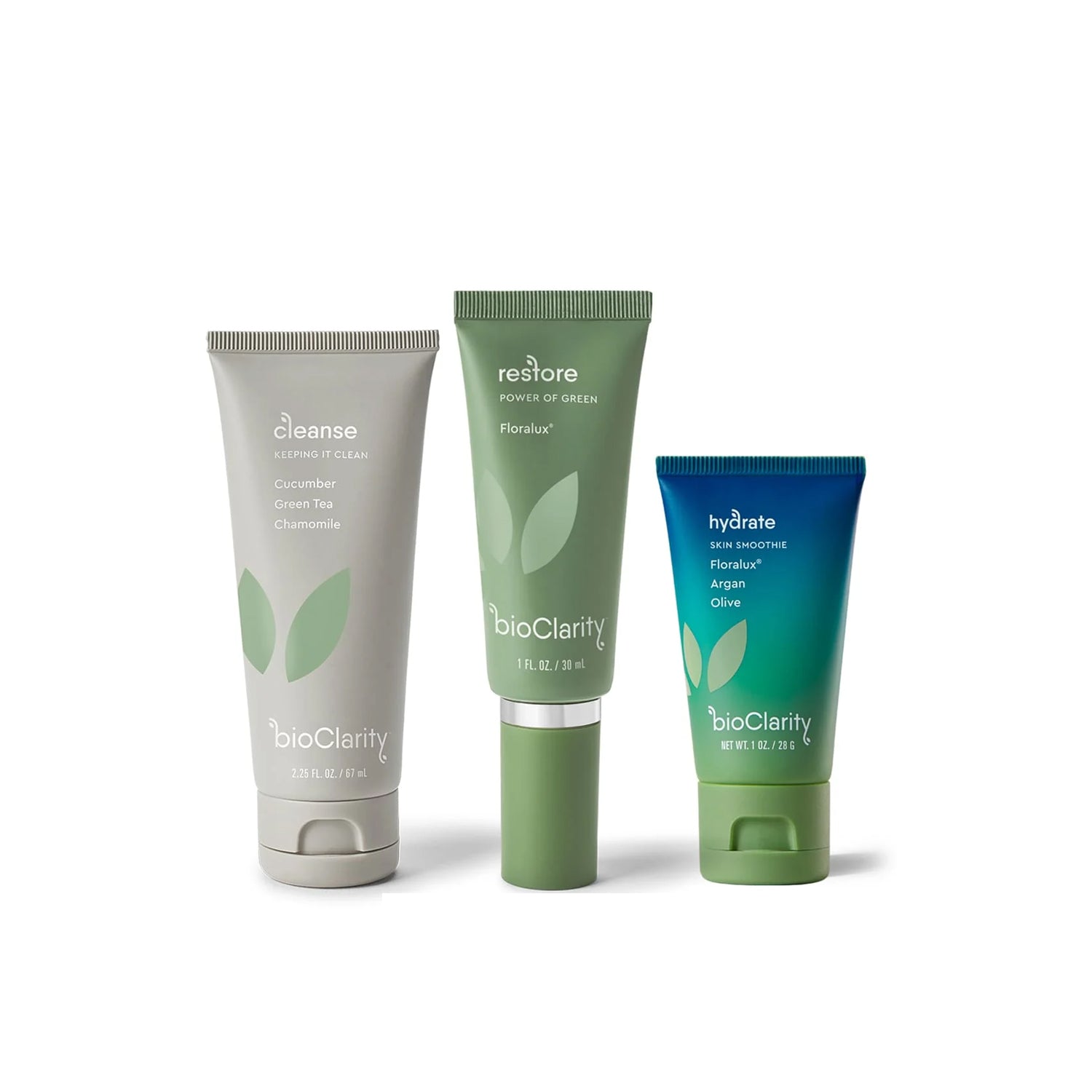
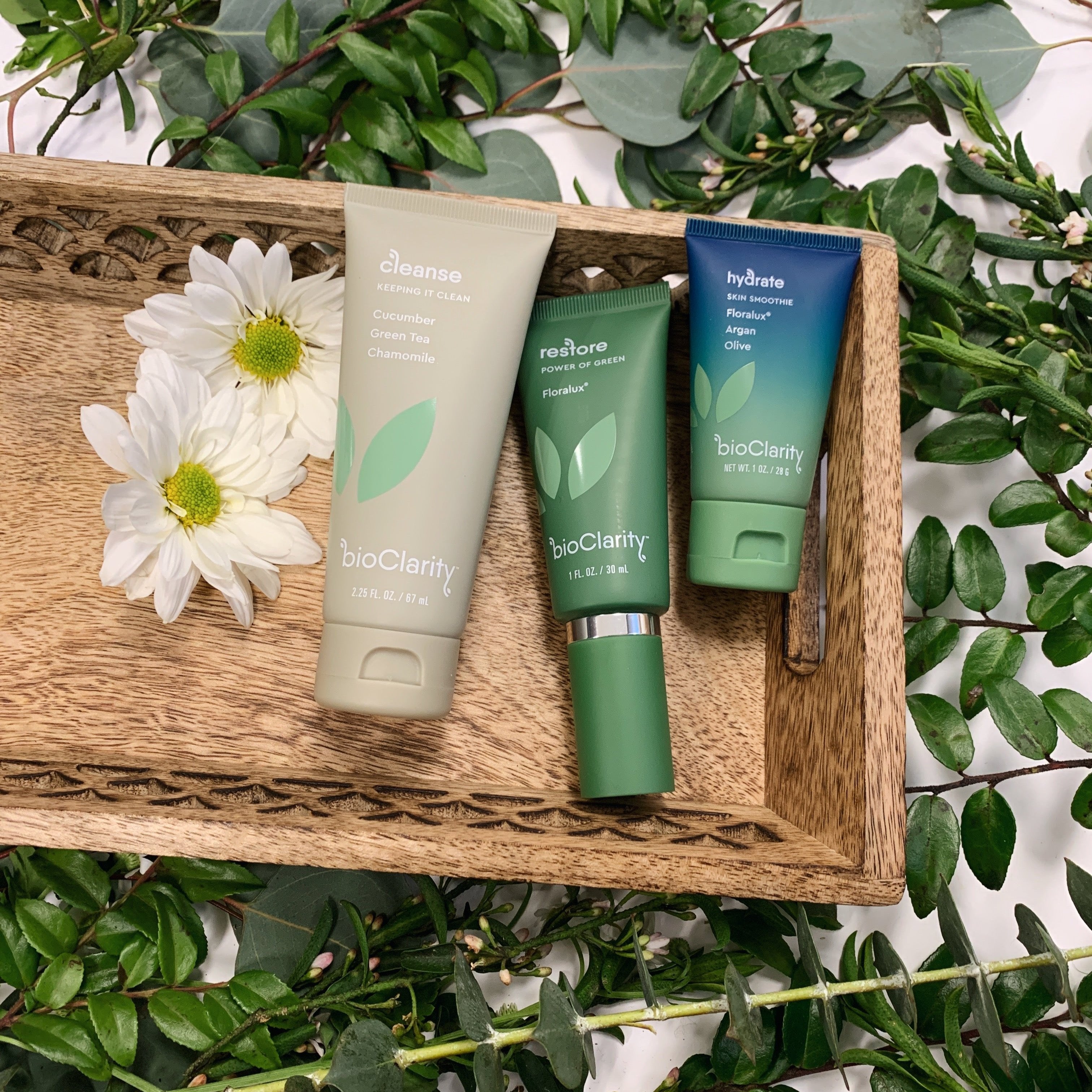
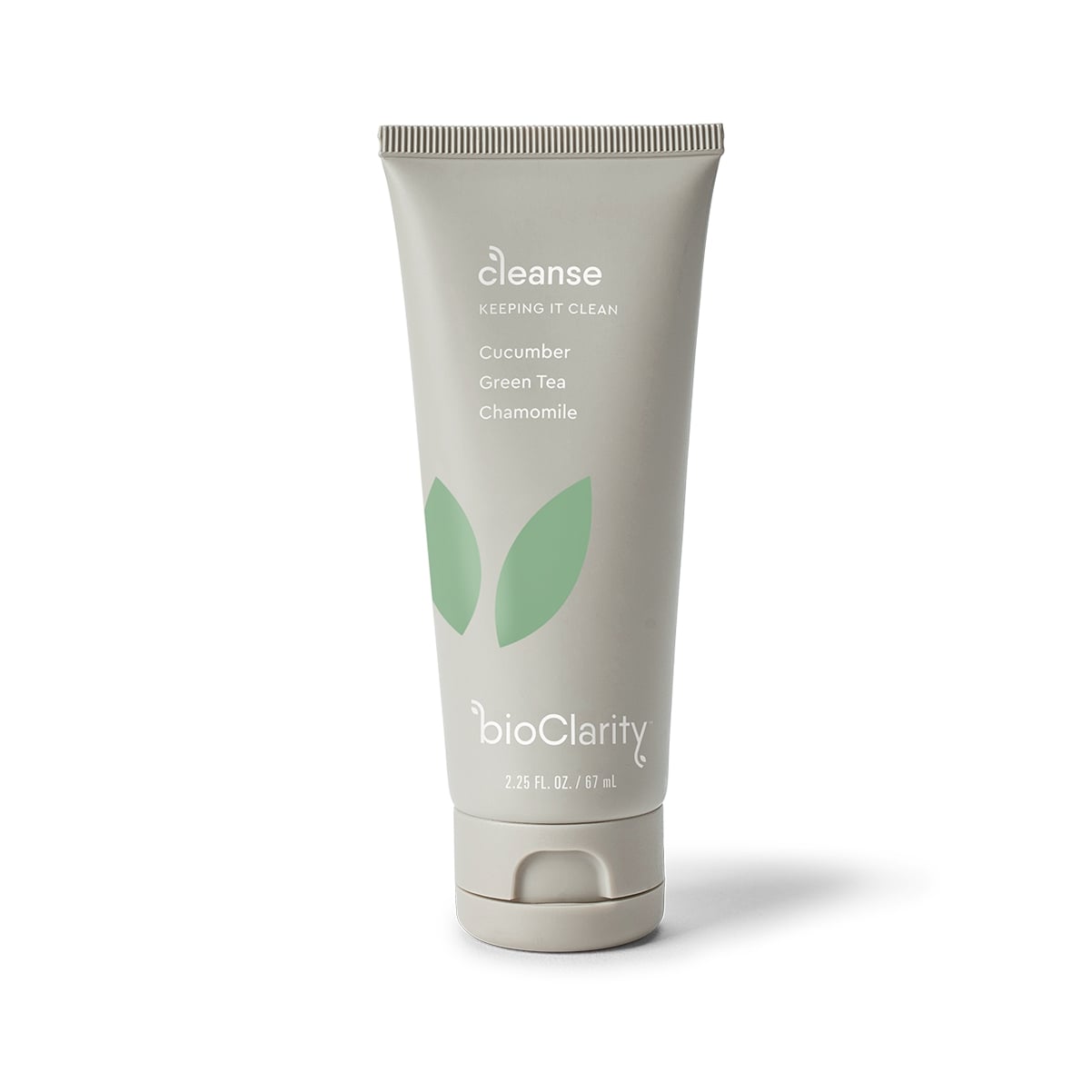
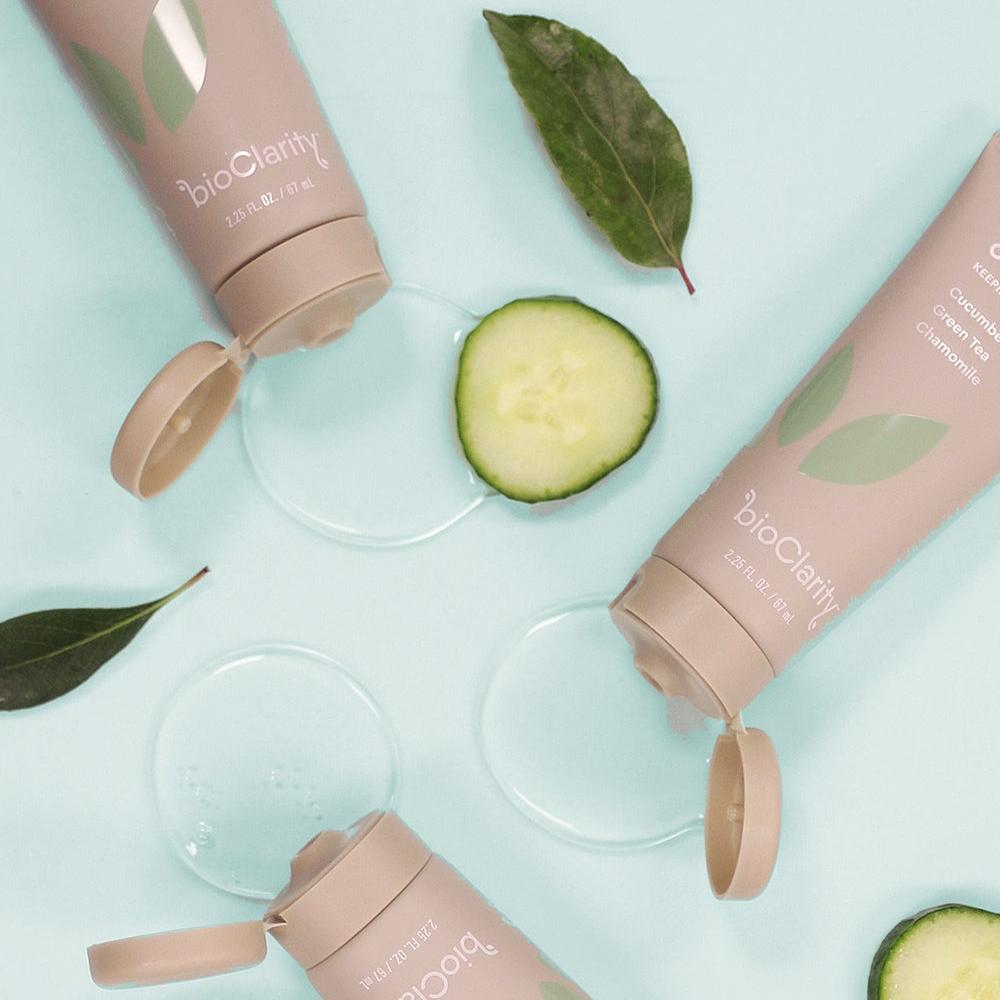
Comments